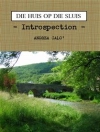In the spring, California’s rolling hills, green valleys, and coastal slopes are colored with wildflowers treasured by both residents and visitors to the state. First published more than forty years ago, this popular guidebook has helped thousands of amateur and intermediate wildflower enthusiasts learn the names of the flowers located in some of the state’s loveliest and most accessible areas—from below the yellow pine belt in the Sierra Nevada westward to the coast. Thoroughly revised and updated throughout, it is now easier to use and more accurate—the perfect guide to take along on outdoor excursions in California and surrounding regions.
* Includes 244 new color photographs and 102 detailed drawings
* Now describes more than 400 wildflowers emphasizing the species most likely to be encountered in the state today
* Plant descriptions now include more detail, helpful identifying tips, and locales where flowers are likely to be seen
In the spring, California’s rolling hills, green valleys, and coastal slopes are colored with wildflowers treasured by both residents and visitors to the state. First published more than forty years ago, this popular guidebook has helped thousands of amat
Inhaltsverzeichnis
Editor’s Preface to the New Edition—
Phyllis M. Faber
Acknowledgments
Introduction
Introduction to the Plant Communities of California in Spring—
Robert Ornduff
Maps of California
Reddish Flowers: Rose to Purplish Red or Brown
Whitish Flowers: White to Pale Cream or Pale Pink or Greenish
Bluish Flowers: Blue to Violet
Yellowish Flowers: Yellow to Orange
Glossary
Art Credits
Index
Über den Autor
Philip A. Munz (1892-1974), of the Rancho Santa Ana Botanical Garden, was Professor of Botany at Pomona College, serving as Dean for three years. Dianne Lake is Rare Plant Committee Cochair and Unusual Plants Coordinator at the California Native Plant Society, East Bay Chapter. Phyllis M. Faber is General Editor of the California Natural History Guides.












